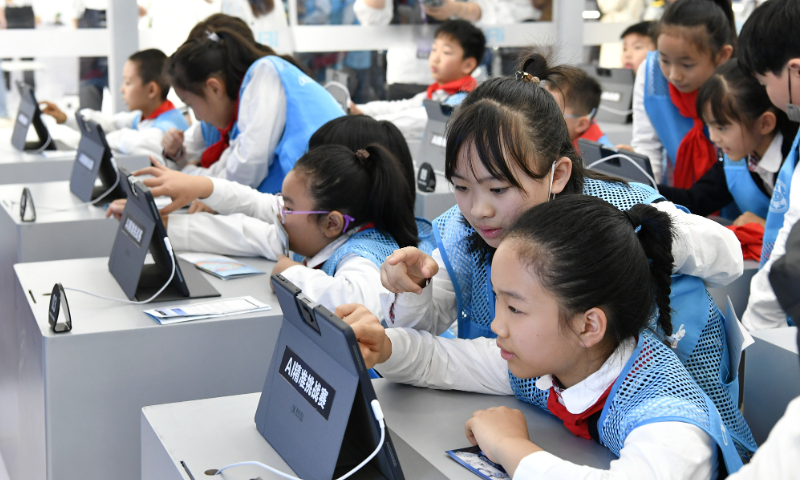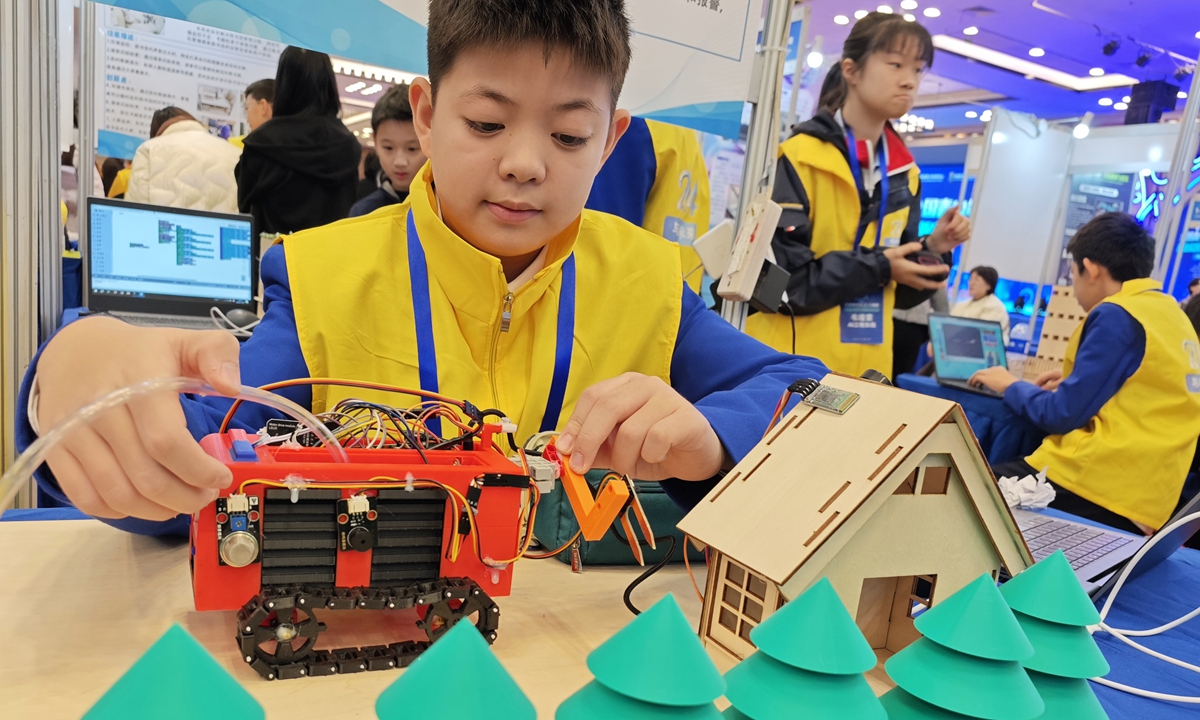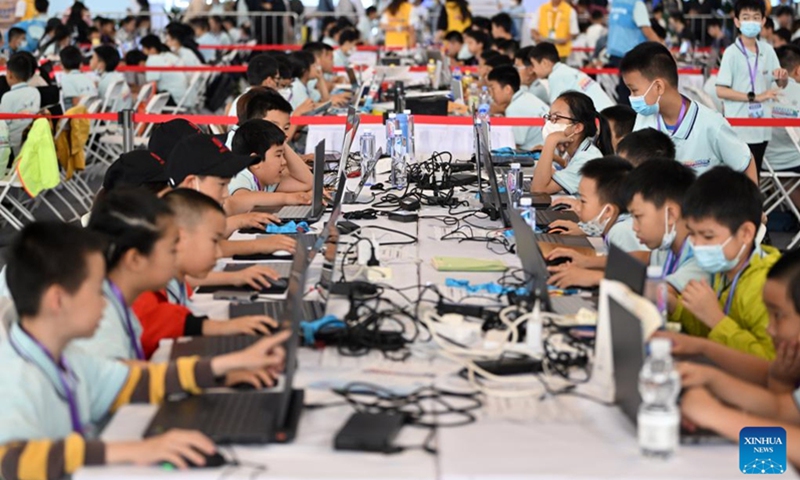
Children are experiencing intelligent teaching devices in Hefei, Anhui Province on October 24, 2023. Photo: VCG
China's Ministry of Education has recently issued two guidelines to promote artificial intelligence (AI) education in primary and secondary schools by building a tiered, progressive and spiraling general AI education system, prohibiting students from independently using open-ended content generation at primary schools and banning teachers from using generative AI as a substitute for their core teaching responsibilities.
The release of the two documents - the guidelines for AI general education in primary and secondary schools (2025) and the guidelines for the use of generative AI in primary and secondary schools (2025) - marks a significant initiative to scientifically and systematically promote AI education across all levels of schooling, further implement the cultivation of innovative talent with AI literacy and offers a Chinese solution to respond to technological transformation in the global education sector, CCTV News reported on Monday.
The guidelines for AI general education aim to establish a comprehensive, scientifically grounded AI education system, which centers on AI literacy through the adoption of a spiral curriculum designed to realize the development from cognitive enlightenment to creative practice, CCTV reported.
At the primary level, the focus is on sparking interest and building foundational cognitive understanding. During the junior high school period, the AI education will reinforce students' understanding of technical principles and foundational AI applications. At the senior high level, emphasis is placed on systems thinking and innovation.
According to the AI general education guidelines, the goal is to cultivate students' core competencies for adapting to an intelligent society, the AI education system will cultivate talent with AI literacy characterized by an integrated development in terms of knowledge, skills, thinking and values which includes the development of technological innovation thinking, critical thinking, human-AI collaboration skills, AI literacy, and a strong sense of social responsibility, People's Education magazine reported on Monday.
By implementing a coordinated mechanism involving "curriculum restructuring, integrated resources, innovative assessment and empowered teacher training," this initiative aims to transition AI education from localized pilots to nationwide implementation, ultimately establishing a Chinese-style model of AI general education for primary and secondary schools, CCTV reported.
The guidelines for using generative AI focus on practical applications in primary and secondary education, clearly specifying the usage standards for each educational stage. They aim to ensure that the technology is used safely, appropriately and effectively to support teaching, promote students' personalized learning, and advance intelligent education management, while strictly upholding data security and ethical standards, according to CCTV.
The guidelines stress that in primary and secondary schools, generative AI should be used with strict safeguards for personal privacy and data security. Its potential should be fully harnessed through standardized and regulated application. At the primary level, students are prohibited from independently using open-ended content generation tools, the China Youth Daily reported on Monday.
The guidelines also stress that teachers should not use generative AI as a substitute for the primary teaching role. Teachers are prohibited to rely directly on AI to answer students' questions or provide consultation. Teachers should avoid using AI-generated content to evaluate students and are strictly forbidden from inputting sensitive data - such as personal information or exam questions - into AI tools, in a bid to prevent data breaches and violations of privacy, according to the China Youth Daily.
The implementation of the two guidelines is expected to enhance AI literacy among primary and secondary students, deepen the integration of AI into education, and drive innovation in teaching models. They aim to build a new AI-powered educational ecosystem that is safe, efficient, equitable and inclusive, laying a solid foundation for cultivating innovative talent in line with the development of the era, according to People's Education.
Global Times


